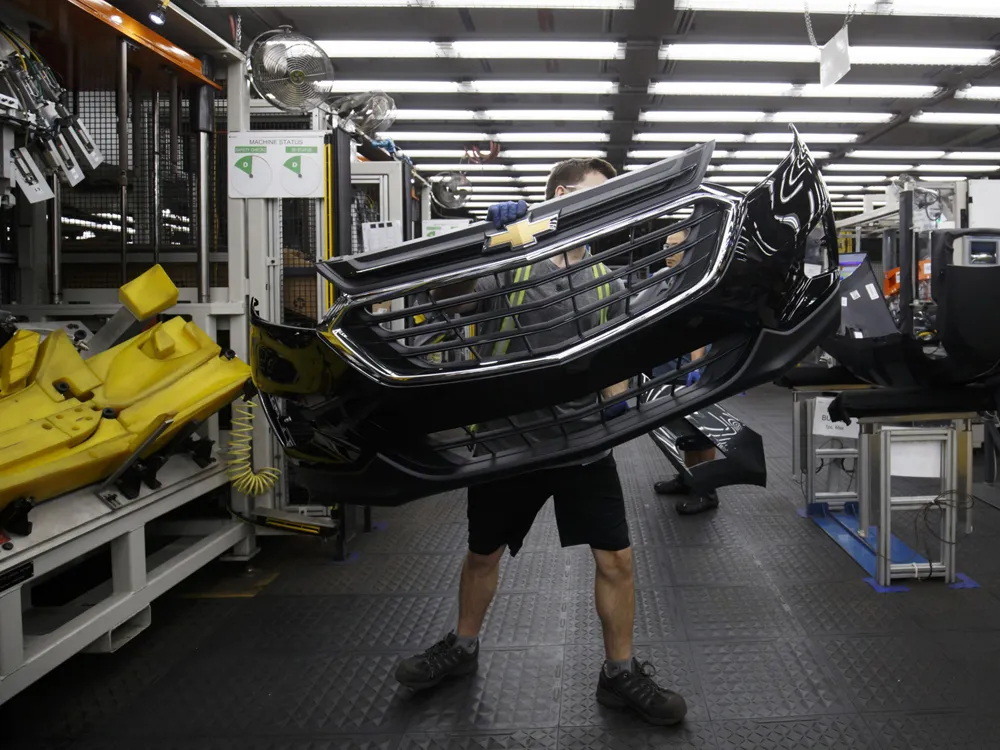Giving employees a stake in the company they work for has been one of my guiding business philosophies. I’ve always believed that if employees have a real and tangible stake in the company’s success — if employees are part-owners — then they will be more motivated to produce a better product for a better price.
The reason why is simple: as an owner or part-owner, you instinctively want to do everything to the best of your abilities. You want to produce work of the highest calibre because you’re part of something you take pride in. And most importantly, you know that your contributions to the bottom line will be financially rewarded.
In the last federal budget, the Canadian government announced that it would amend the tax code to create an Employee Ownership Trust. The proposed new trust would make it much easier for business owners to sell a majority of their companies to workers and would go a long way to promoting more employee ownership in Canada.
It would be a welcome change and could give a greater number of Canadians the chance to own a slice of the company they work for.
I discovered the power of employee ownership by chance. I noticed one day that the foreman of the first factory I opened, a man named Herman Koob, was acting a little strangely. When I asked him what was wrong, he told me that he was thinking of starting his own business — much the same as I did when I was foreman at someone else’s tool and die shop several years earlier.
My foreman was itching to strike out on his own and be his own boss. I could have doubled his salary, but it would have been only a temporary fix. It would not have filled the hunger he had to run his own small business.
I realized that if Herman left, his departure would stifle the company’s growth. I also realized that if I hired a new foreman, and I didn’t show him all the ropes on how to run the business, then I would end up still doing most of the work. My next thought was that if I taught the new foreman everything I knew, he might eventually want to leave and start his own business too, the same way I did, and the same way Herman felt. So I came up with a simple solution: I asked Herman to become a partner in the business.
The next day I sat down with Herman and made the following proposal: I would open a new factory and give him one-third ownership. He agreed, and I put up the money needed to build the factory, bought the machinery and made Herman a part owner.
The new factory was a great success. In two years, the number of employees grew from ten to fifty. Because he was a part owner, Herman hustled day and night. And the more business he drummed up, the more money he made.
So I took the next foreman and did the same thing, and then I took another foreman and gave him the same deal, and after a while I had a growing number of factories, and all the managers at those factories had an ownership stake in the business and a cut of the profits.
That partnership arrangement became the blueprint for Magna’s unique decentralized operating structure, where each Magna plant was an independent business unit that was run by a hands-on manager who received a portion of the factory’s profits. We had hit upon a winning formula — one that Harvard Business School would years later describe in a case study as “Magna’s success formula.”
I had no financial studies to prove that employee ownership could ignite greater productivity and growth. I just knew in my gut that if you gave everyone a cut of the action, your business would grow and make more money.
It astonishes me that we don’t do more as a society to encourage businesses to promote profit and equity participation so that workers can become part owners in their places of employment and share in the company’s financial success.
One of the great downfalls of business is that it has neglected turning workers into capitalists through profit and equity participation programs. Doing so would allow workers to accumulate enough capital so that they could have a greater shot at becoming financially independent.
There’s nothing like ownership to put a fire in the bellies of your workers. Ownership instills pride and creates drive and hustle. It’s just common sense: when you own a piece of the machine you’re working on, and you get a share of the profits you help produce, you care more, you work harder.
Employee ownership is a proven formula for growth and profitability. Why more businesses in Canada don’t make their employees part owners is a mystery.

